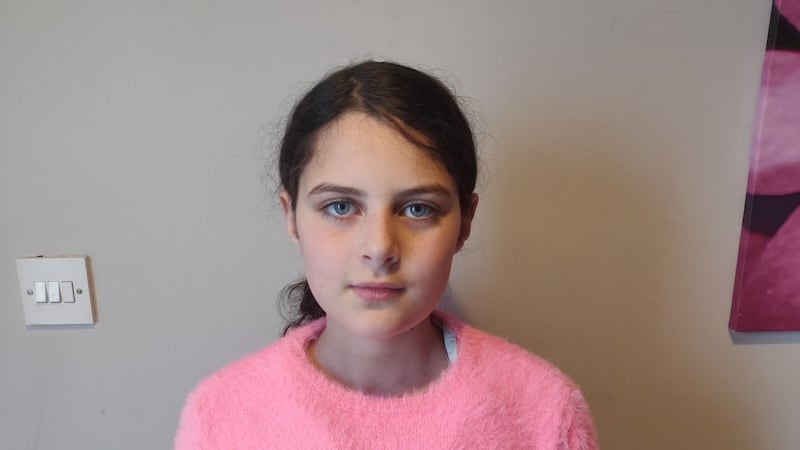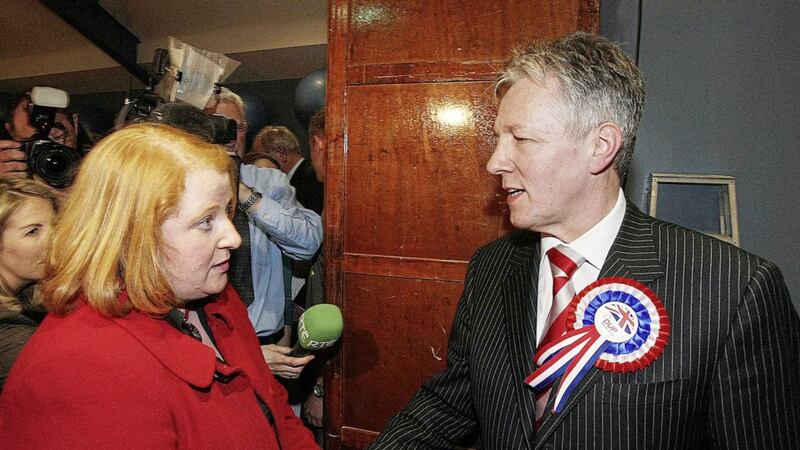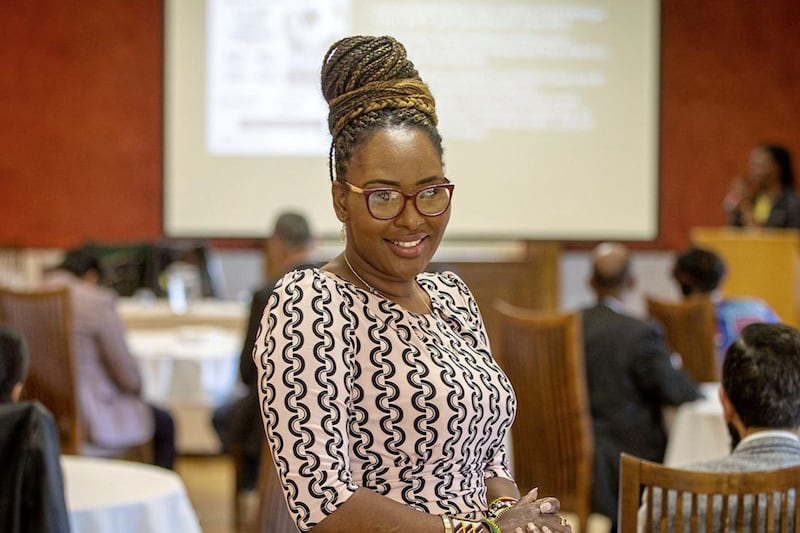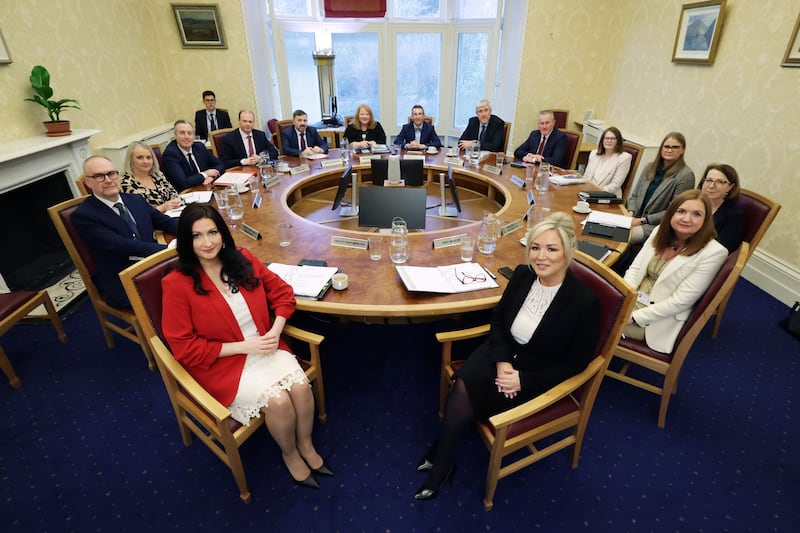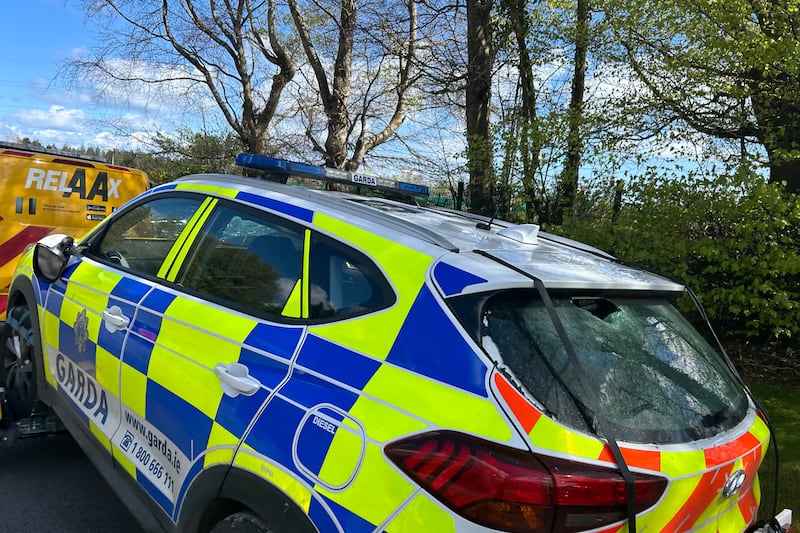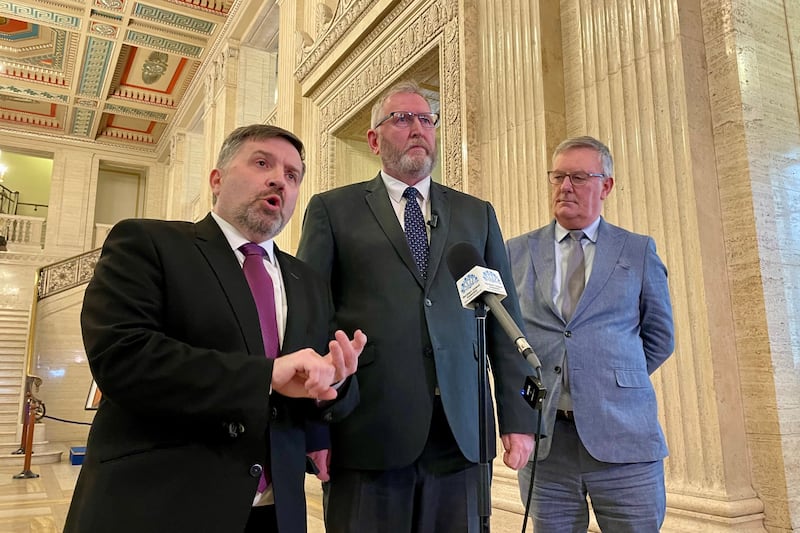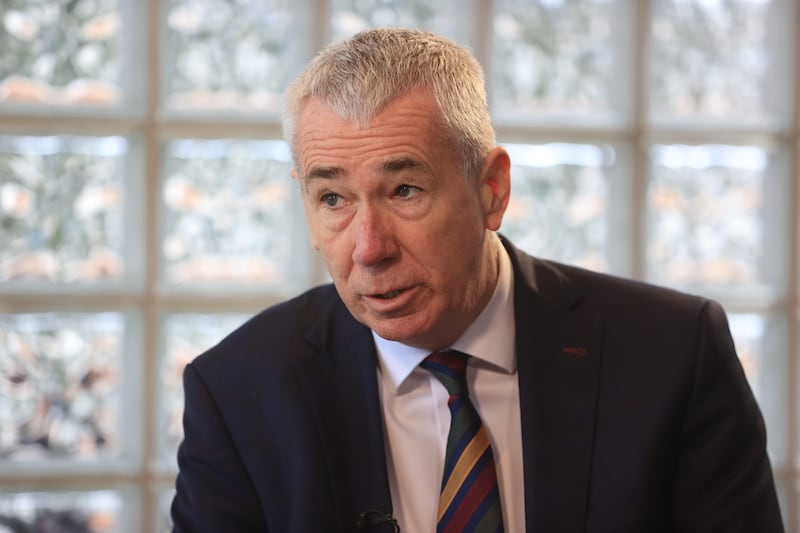It is difficult not to be moved by the heartfelt words of young Yara Moustafa who has spoken powerfully of how she and other children should not be called 'other'.
Yara, who is 11-years-old and lives in Strabane, is of Muslim background. When applying to integrated schools in her area, she found that she had to choose to describe herself as Protestant, Catholic or other.
"I refuse to be called other, it isn’t nice," she said in a handwritten letter, which can be seen - and heard read by Yara - on this newspaper's website.
[[ge:irishnews:irishnews:3255838]]
There is something wrong with our society when it takes the intervention of a child to speak out about an issue that adults should have already addressed. What does it say of us when children like Yara are made to feel that they are somehow less equal or less worthy than their peers?
As Lilian Seenoi Barr of the North West Migrants Forum points out, the practice of 'othering' school children is wholly unfair and exclusionary.
"What we are doing here is telling young people that they don’t belong, that they are an 'other'," she says.
Ms Seenoi Barr argues that the school application form should remove any specific reference to Catholic or Protestant and be replaced by a broader 'religion/ethnicity' heading.
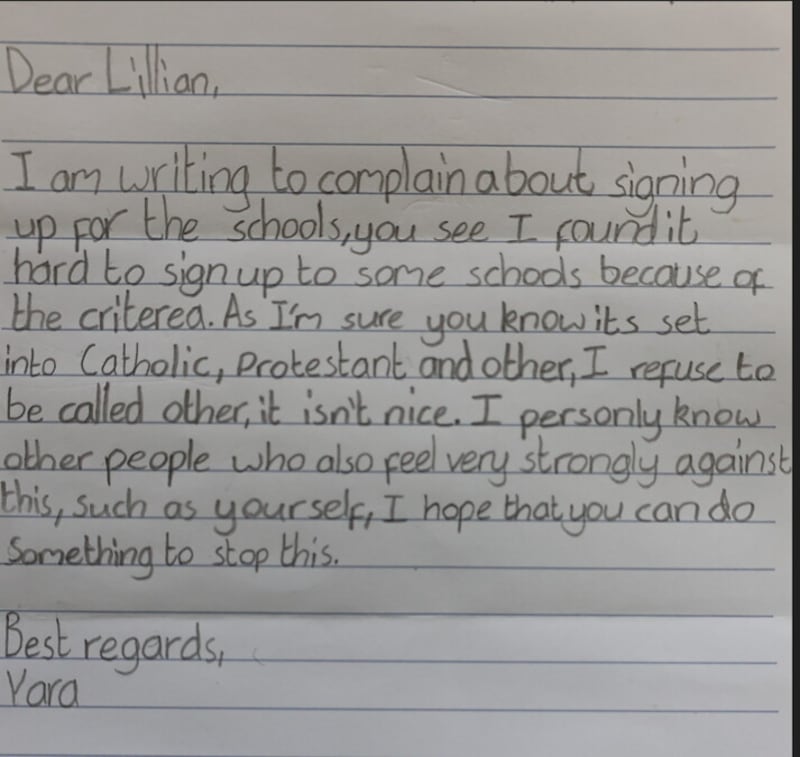
The Council for Integrated Education says that the sector is striving for a 40 per cent Catholic, 40 per cent Protestant and 20 per cent 'other' balance.
This may have been entirely reasonable in the Northern Ireland of 40 years ago, when integrated schools were formed, but this society has changed immeasurably since then. Our population has become more diverse, which has enriched our communities immeasurably. Indeed, one of the tragedies of the Brexit process is how it has stoked anti-migrant feelings, albeit among a tiny minority.
An echo of Yara's experience is seen in our politics at Stormont, where MLAs are classed as nationalist, unionist and other. The growth of the 'other' - chiefly represented by Alliance - has raised questions about some of the Good Friday Agreement structures, and whether they allow full representation of all voices.
Questions of identity matter hugely in this society. There are many who will enjoy this weekend's coronation events and regard them as central to their identity. A mature, respectful society should be at ease with that, as it should also be with, for example, 1916 commemorations.
But it should also recognise the identity of the young people like Yara whose dynamism is already helping to shape the Ireland of tomorrow.
